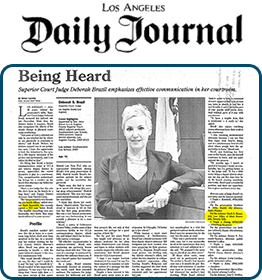One Refusal Equates a Refusal: You Cannot Initially Decline the Test and Then Offer to Undergo It
A few different issues occur with refusals and false refusals. We have situations where someone will choose not to do a test. The officers will ask you to do a breath test or a blood test. If you decline to take the test, the law won’t give you a chance to reconsider. You cannot say “no” and then “yes” later. Unfortunately, the law is against us in this.
One refusal equals a refusal, so if you change your mind later, that doesn’t work. Sometimes officers will give you a chance to do it, and it doesn’t go down as a refusal if you do submit to it then. Quite often we’re seeing cases both with breath and blood where people are being alleged to have refused when they did not refuse at all.
Equipment and Human Error Can Result in a False Refusal Classification
For example, there are incidents in which a blood sample could not be obtained from a consenting person. There are situations when the phlebotomist sticks a needle in four, five or six times, and still cannot get a valid blood draw. The officers that person refused to give the blood sample, and no honest person is going to say that’s a refusal. You stick your arm out. If they can’t get the blood, how is that your fault? But officers have claimed that’s a refusal, and the DMV will try to suspend the license in that situation.
More commonly, someone tries to do a breath test and blows into the machine, and the machine does not register a valid sample. There are certain minimum requirements as far as air flow rate, volume and pressure that needs to be blown through the machine to get a valid sample. Sometimes people cannot provide that much air. Sometimes the machines are not working properly and don’t take a sample. Someone may blow into the machine and the machine does not register properly and the officer writes it up as a refusal.
We’ve had a lot of success in looking into the inner workings of the machine to get more information. We prove this to the Department of Motor Vehicles and the court district attorney. At times, someone blows into the machine and the officers don’t know it, but the machine actually did take and obtain solid samples. We were able to show where it’s not our client’s fault but the machine or the officer’s fault and win cases based on that.
Another situation where someone may be charged with a refusal is where they just have a personality conflict with the officers. They may not trust the officers. The officers may not be being honest with them, and the officers may, as a form of punishment, say, “We’re going to write you up as a refusal. We don’t like the way you’re behaving,” and they put it down as a refusal. We have to really dig into the police officers’ background and experience and show that this, in fact, is not a refusal but an officer-created situation.






 Personal Attention
Personal Attention Every criminal case is unique and no attorney can guarantee the outcome of a case. The information on this site is legal advertising and for general information only. Using this site, requesting books, information, consultations or communicating with Attorney Rosenfeld through its site does not form an attorney/client relationship.
Every criminal case is unique and no attorney can guarantee the outcome of a case. The information on this site is legal advertising and for general information only. Using this site, requesting books, information, consultations or communicating with Attorney Rosenfeld through its site does not form an attorney/client relationship.








